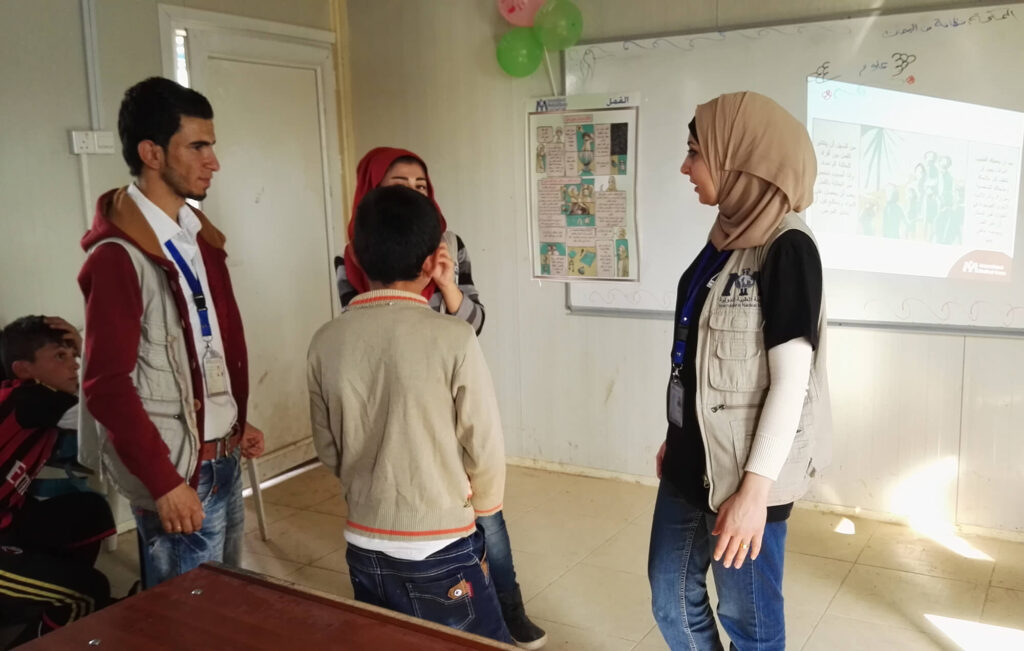While working in an Iraqi camp for internally displaced persons (IDPs) in 2015, Dr. Hamsa Mohammed met a family—a mom and two daughters who’d lost their father as they fled violence from ISIS. One of the girls was of school age but lacked the documents required to register. Dr. Hamsa contacted a legal partner in the camp for advice but was told it would take time to complete the process—which could lead to the girl missing registration entirely. Dr. Hamsa refused to allow that to happen. She and a colleague met with the school’s manager about the possibility of allowing the girl to enroll while her family worked to ensure that she had the proper documents. The manager agreed, and when the girl found out, she was thrilled. “The look on her face that day was worth all the hard work,” Dr. Hamsa says.
It’s moments like these that make Dr. Hamsa proud to be a Community Health Technical Manager at International Medical Corps.
“So many people think that the community health workers only deliver educational messages, but it is so much more. They connect people with appropriate services, build trust and change someone’s life,” she says.
Now based in Erbil, the capital of the Kurdistan region of Iraq, Dr. Hamsa originally worked as a dentist before retraining in the public health field. She joined International Medical Corps six years ago as a Community Health Officer and is now a Community Health Technical Manager, developing training materials, information education and communication (IEC) materials, and tools to monitor quality of care.
A major part of Dr. Hamsa’s role—and the work she’s most proud of—has been building a team of community health workers (CHWs). She was the first person hired to our Community Health Team in Iraq, and soon after starting, she recruited more than 20 additional team members. Today, the team boasts around 200 CHWs who serve across Iraq in a variety of capacities.
“CHWs are people in the served population who have been identified for their good communication skills and are preferably influencers—teachers or community leaders,” Dr. Hamsa explains. “CHWs conduct service mapping to determine the services that are available and how best to connect beneficiaries with these services through referrals. CHWs are usually affiliated with a primary health center, where they refer cases that need medical intervention. They also refer cases to mental health and psychosocial support units and gender-based violence services.
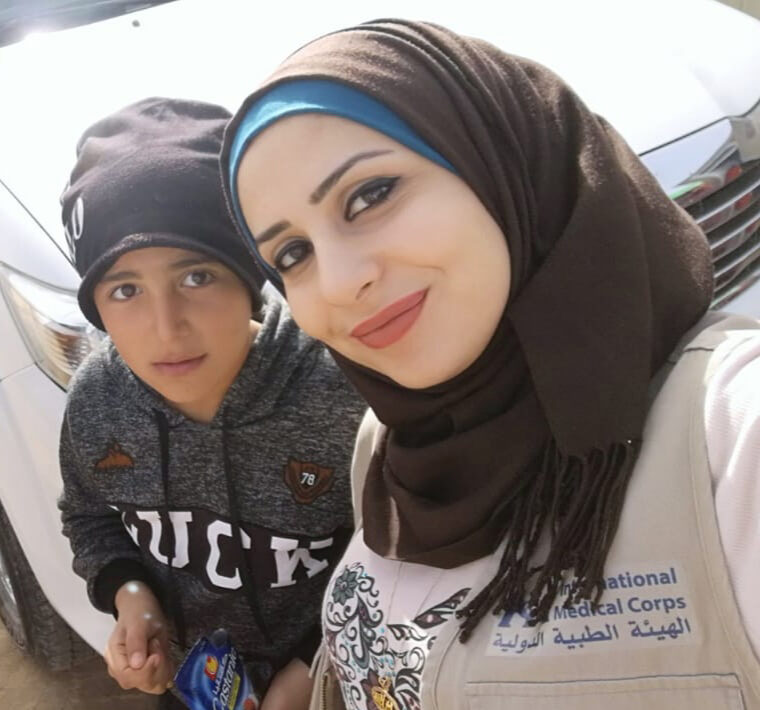
“In the community, our teams identify areas for intervention, and advocate for change,” she continues. “For example, if there is a problem associated with the latrines in a camp, CHWs will raise the issue with camp management and work together with WASH [water, sanitation and hygiene] partners to mitigate it. The Community Health Team also represents a link between the community and other International Medical Corps services. For example, if clinic staff are reporting an increase in diarrhea cases, CHWs will visit families, gather information and figure out the things in common between the cases. If the drinking water is the source of infection, they will work with WASH partners, Camp Coordination and Camp Management on the quality of drinking water.”
Dr. Hamsa’s team also collaborates with schools and community centers on educational events that present community health topics in a fun and entertaining way. “At some events, we put on plays, sing songs or show videos. At others, we add games, cooking demos or physical activities like football matches or racing, depending on the topics discussed,” she explains.
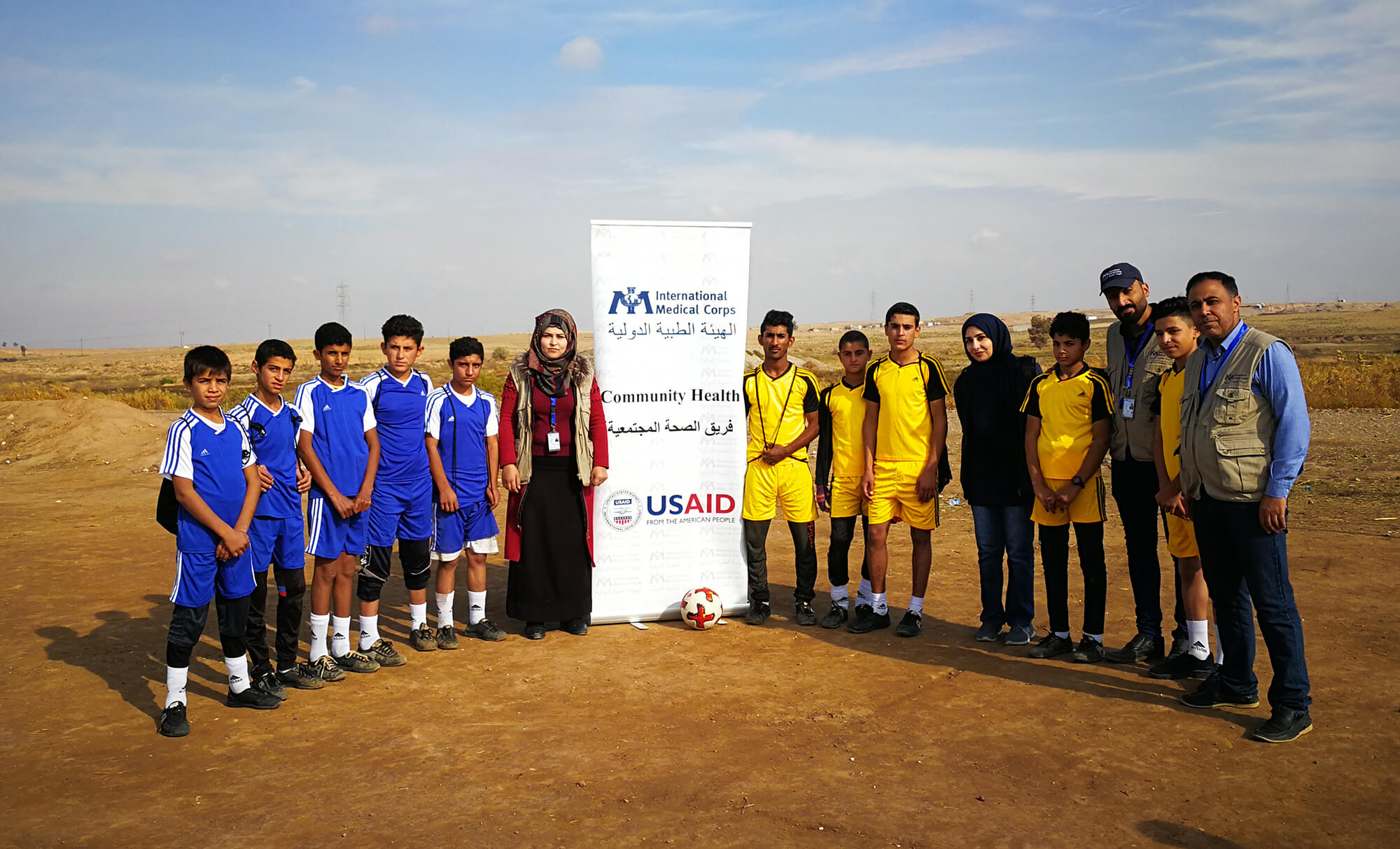
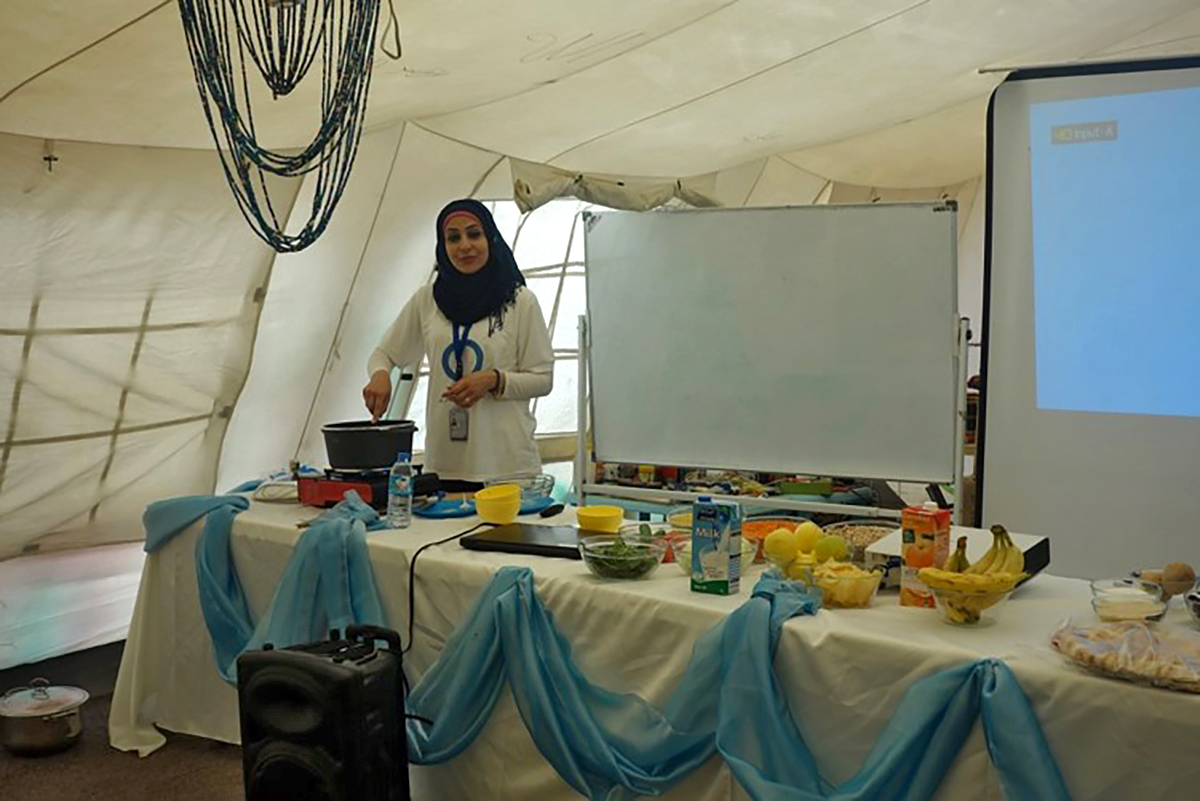
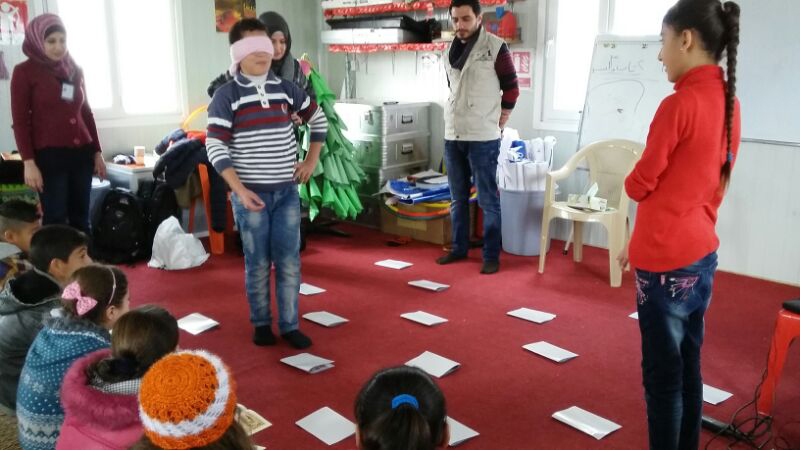
Last year, Dr. Hamsa worked with colleagues to develop a disability support program, which she says is “making a big difference.” The COVID-19 pandemic created major setbacks for the program, which was delayed from its original launch in June 2020. However, group activities now are allowed for a maximum of 10 attendees.
“We identified the people with disabilities in two refugee camps, then developed messaging and training materials for them and for their caregivers about how to deal with different kinds of disability,” Dr. Hamsa explains. “We gather people with disabilities and let them talk about the areas of the camp that need improvement. Then the Community Health Team advocates for these improvements, such as ramps and other assistive devices that increase people’s access to services. We are also working on ways to expand their ability to join our educational sessions. And we’re conducting support groups for the caregivers of people with disabilities.”
But even in the midst of such successes, there are major challenges.
“When I visit new sites, I see so much vulnerability and so much need for intervention. But because our services are related to funding availability, you have to prioritize certain sites over others. It’s difficult,” she says, adding that security issues also can create interruptions in the delivery of services.
Despite the challenges, Dr. Hamsa is grateful for what she’s able to give International Medical Corps—and what the organization has given back to her. “The team spirit, the collaboration, the relationships and the overall atmosphere at International Medical Corps are so special,” she says. “When you work at International Medical Corps, you learn a lot, and you’re able to take that knowledge and do anything with confidence.”
